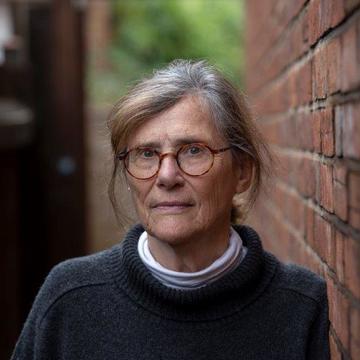I’ve been writing biography since the 1980s, but when I started out as a student, life-writing was considered a rather disreputable academic subject. Since then the study of life-writing has flourished and expanded, and OCLW, as we call it, has been part of that big expansion of the subject.

In 2011, a student called Shaharzad Akbar gave me some advice. She was the first woman Afghan graduate student ever to come to Oxford. Her family had fled from the Taliban to Pakistan. From there she’d got a scholarship to Smith College and then a Weidenfeld Scholarship to do a Master’s at Oxford in International Development Studies. This remarkable young woman is now the director of Open Society Afghanistan in Kabul, working for reforms and gender equality in her country. Shaharzad suggested to me the idea of a Wolfson College life-stories day, in a college which has 600 graduate students from all over the world, and which embodies interdisciplinarity, openness, egalitarianism and internationalism. The results were astonishing, fascinating and moving, and they were part of my inspiration for setting up the Centre for Life-writing, in the College that year, 2011.
To have a centre for life-writing at Oxford was the fulfilment of a dream for me. I’ve been writing biography since the 1980s, but when I started out as a student, life-writing was considered a rather disreputable academic subject. Since then the study of life-writing has flourished and expanded, and OCLW, as we call it, has been part of that big expansion of the subject.
We’ve since built up a very strong international reputation. We have links all over the world to other life-writing centres, and we are a recognised part of Oxford’s academic life, with links to many faculties at Oxford. We bring students and scholars in from many different countries to work with us, and we stage large international conferences. Our events are interdisciplinary and creative as well as scholarly. We’ve had conferences on the lives of objects, and lives in dance. We’ve had novelists like Julian Barnes and Rachel Cusk and Alan Hollinghurst come and talk to us about their very mixed feelings about biography. Julian’s talk was called, rather ominously, Some of My Best Friends Are Biographers. We’ve had historians and politicians, philosophers and poets, talk about how life-writing connects to their work.
Our graduate students have visited some of Oxford’s most disadvantaged schools to hear some of those children tell their life-stories. Sixth-formers work with us on our informal seminars, and all kinds of people, many of them retired, from the local community come to our workshops to get help and advice on writing the lives of their ancestors or their family members.